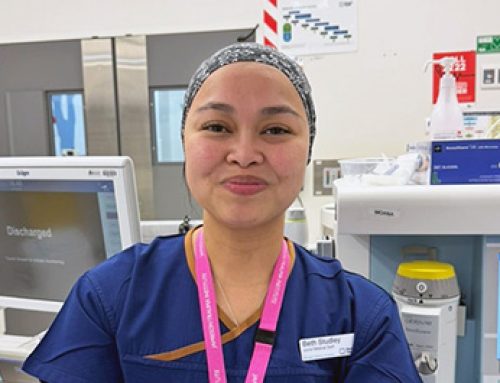Choosing wisely: making informed health technology decisions
By Amina Tariq, Associate Professor – Digital Health

The demand for digital health has significantly increased in the past decade, and health services across most developed nations have foundational health technologies in place, such as electronic health records (EHRs). There is now a growing interest in reaping the benefits of the enormous amounts of data that such systems capture. But the options around digital health can be overwhelming for health services who continuously face budget and resource constraints.
When selecting new or improved digital health technologies, the goal is to enable and optimise person-centred care. This is achieved by creating interoperable systems, a seamless patient journey and improving access to data that enable clinicians to make informed decisions, all while meeting ethical privacy and security requirements.
So many options
With this surge in demand for digital health, health services are struggling to effectively manage the daily influx of requests which they receive for consideration. Health professionals are excited to adopt technologies into practice, such as mobile apps and dashboards. However, when resources are scarce and budgets restrictive, responding to these requests requires evidence-based approaches to ensure meaningful selections are made.
The adoption of new technologies can create disruption, as well as the need to de-implement or pause other ongoing digital health initiatives, which also has an impact on resources. This requires careful consideration of the technology and service portfolio within healthcare organisations.
The importance of co-design
The value of investing in digital health that really matters to health services cannot be understated. While the groundwork for setting up technologies is put in place by hospital teams, the researcher’s role is to strategically build on existing evidence and bring all of the pieces of the puzzle together to generate practical solutions.
In a recent demand management improvement project for Metro South Health in Queensland, we developed an implementation technology framework for improving the assessment of new digital health requests from clinicians. Our co-design process involved interviews with clinical experts, senior management and the informatics team at Metro South to set out clear criteria for defining a transparent new process to assess incoming requests, underpinned by an evidence-based criteria. In such a complex environment, this clarity was important in addressing criticism from frontline clinicians that their advice wasn’t being listened to. It allowed management to have transparent communication with health teams around decisions that had been made.
We provided guidance on how to look at the Metro South digital portfolio and tailor it to their needs, helping to narrow down the options. Key elements captured in the co-developed criteria included ensuring they aligned with the national framework, while allowing for contextual factors influencing implementation. Rather than developing a set of criteria in isolation, by collaborating with the Metro South team we were able to understand what systems, processes and solutions already existed, which was crucial to achieving the best outcomes.
Need for continuous adaptation
The implementation and adoption of digital health technology is not linear, but a complex and ever-changing beast that needs continuous improvement. With artificial intelligence now in the mix, the opportunities in digital health have grown even further, but budgets really limit what can be adopted.
We gave Metro South a working prototype for an online workflow tool to support them in decision-making and assessing the value of proposed new technologies, but it is still a rapidly changing process that is continually being refined. We developed two decision criteria which are currently under evaluation, and will need to be improved further.
Our research expertise in evidence-based, multi-level implementation approaches to demand management is helping Metro South shape more effective and efficient services, change staff behaviour and improve patient outcomes. We really believe this work is generalisable and can help health services across Australia to effectively develop contextualised solutions to manage growing digital health demand.
The AusHSI Digital Health team will further unpack AusHSI’s research in digital health across several talks at the 13th Health Services Research (HSRAANZ) Conference running from 4–6 December 2024 in Brisbane. Please see the conference program for more details.







